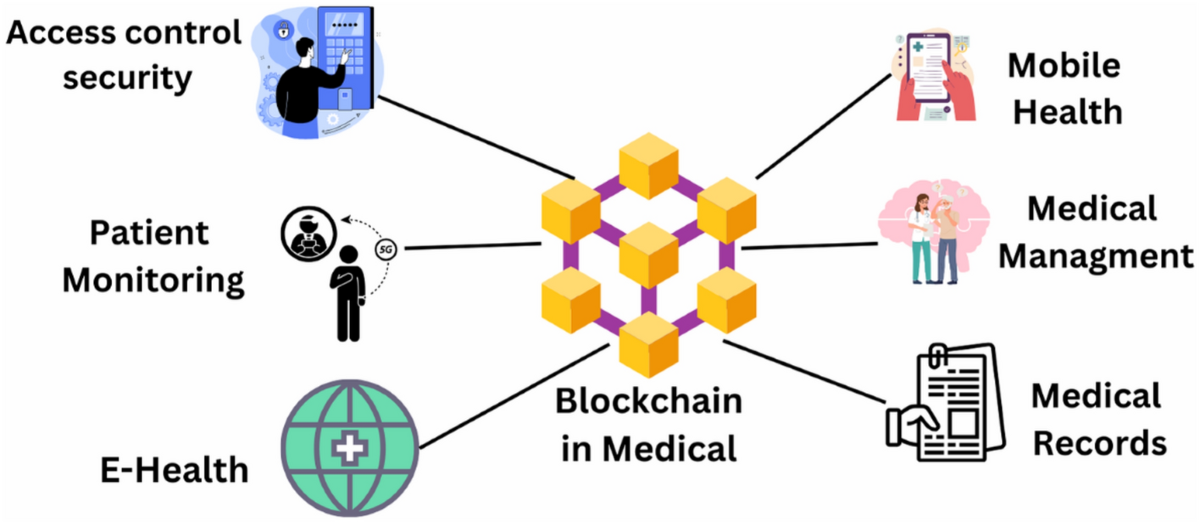The world of Health Tech is constantly evolving, and 2025 is set to be a pivotal year for innovations that will revolutionize how we approach health, fitness, and wellness. From AI-powered tools to wearable tech that can monitor our health in real-time, the future of health tech is brighter than ever. Here’s a look at what’s new and exciting in the health tech landscape for 2025.
1. AI-Powered Diagnostics:The Future of Faster, Accurate Testing
Revolutionizing Diagnosis with Artificial Intelligence
AI has already made strides in healthcare, but in 2025, we’re seeing more advanced diagnostic tools that can detect diseases with unprecedented accuracy. AI algorithms can now analyze medical images (like MRIs and CT scans) to identify early signs of cancers, heart conditions, and neurological diseases. With enhanced machine learning capabilities, AI is becoming more precise in diagnosing conditions that often go undetected in early stages.
These technologies help doctors make quicker, more accurate decisions, saving lives and improving patient outcomes.
2. Personalized Medicine: Tailoring Treatments to You
Customizing Healthcare Based on Genetics
With advancements in genomics, 2025 marks a significant shift toward personalized medicine. By analyzing a patient’s genetic makeup, doctors can now prescribe treatments that are tailored specifically to the individual, rather than using a one-size-fits-all approach. This is particularly important in the treatment of cancer, where targeted therapies are proving to be more effective than traditional chemotherapy.
Personalized medicine ensures that patients get the best care based on their unique biological profile, improving both the effectiveness and safety of treatments.
3. Wearables: Health Monitoring on Your Wrist
Smartwatches and Beyond: Monitoring Vital Signs 24/7
![]()
2025 is seeing the rise of more advanced wearables that go beyond just tracking steps and heart rate. New smartwatches and fitness trackers can monitor a wide range of health metrics, such as blood sugar levels, blood pressure, and even mental health indicators like stress and mood.
Some of the latest wearables also use real-time data to alert users and doctors about potential health issues, such as an impending heart attack or stroke. With the ability to monitor health metrics continuously, wearables are transforming preventative care and allowing for quicker medical intervention.
4. Telemedicine 2.0: Virtual Care Gets More Accessible and Interactive
A New Era of Remote Healthcare
Telemedicine has exploded in popularity in recent years, and in 2025, it’s evolving into something far more advanced. Thanks to faster internet speeds and more sophisticated technology, virtual consultations are now more interactive and personalized. With AR (Augmented Reality) and VR (Virtual Reality), doctors can simulate physical exams and provide more accurate virtual care.
Furthermore, health tech companies are working on AI assistants that can help patients with common medical questions and symptoms, offering advice before a consultation with a physician is needed.
5. Robotics: Assisting Surgeons with Precision
Surgical Robots Taking Center Stage
The use of robotic surgery has become increasingly common, but in 2025, the technology is becoming even more advanced. With new AI-integrated robots, surgeons can perform highly complex procedures with more precision and control. These robots can make extremely tiny, accurate incisions, reduce recovery times, and minimize the risks of infection. For patients, this means quicker recovery and better outcomes.
6. Mental Health Tech: Reducing the Stigma and Improving Access
AI Therapists and Virtual Mental Health Support
Mental health care is seeing a transformation thanks to advancements in technology. In 2025, AI-driven mental health apps are providing therapy and support to those who may not have access to traditional in-person therapy. These apps offer personalized coping strategies, track emotional well-being, and even provide virtual therapy sessions with AI-powered therapists.
Not only are these tools helping users track their emotional state, but they are also reducing the stigma around mental health by making care more accessible and private.
7. Blockchain for Health Records: Enhancing Privacy and Security
Blockchain Technology Protecting Your Health Data

As healthcare becomes increasingly digital, privacy and security are a top priority. In 2025, we’re seeing the implementation of blockchain technology to securely store and share health records. Blockchain ensures that personal health data remains private, encrypted, and accessible only to those who have permission to view it.
With this technology, patients can have more control over their medical data, knowing it’s secure and not susceptible to breaches or unauthorized access.
8. AI in Drug Discovery: Faster Treatments for Diseases
AI-Powered Drug Development Revolutionizing Pharma
The process of discovering new drugs is long and costly, but AI is dramatically speeding it up. In 2025, pharmaceutical companies are using AI to analyze large datasets of clinical research, patient records, and chemical compounds to identify promising drug candidates faster than ever before.
This means that treatments for rare diseases, cancer, and chronic conditions may be developed more quickly, offering hope to millions of people around the world.
Conclusion:
The Future of Health Tech is Now
The innovations we’re seeing in health tech in 2025 are not just transforming the way we receive care but also improving our quality of life. From AI-powered diagnostics and personalized treatments to wearables that track our health in real-time, the future of healthcare is brighter, more efficient, and more accessible than ever before.
As technology continues to evolve, we can expect even greater strides in health, wellness, and medical care, leading to a healthier world for us all.








